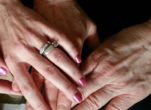
Quilt of Souls
Seriously, you guys, this is just nothing short of beautiful. The role grandmothers play in our lives is one that cannot be duplicated. Our grandmothers shape us in ways that we often don’t fully understand until long after they are gone. Truthteller Phyllis Lawson has penned a book called “Quilt of Souls” to honor her grandmother, who, among other things, made quilts out of clothing of people who died. Beyond the quilts, and through the quilts, Phyllis learned about her identity as a Black American in the 1950s and 60s, and also about what it meant to belong in a world that was so broken around her. The following is partially excerpted from the preface of her book, and I know you will find it as inspiring as I did.
“Quilt of Souls” is the story of my grandmother Lula Horn (1883-1986) who made beautiful quilts from the used clothing of those who had passed on. Each piece of cloth told the story of their life and death. The weaving of their clothing into a quilt mended each broken life back together with each pull of the thread. “Quilt of Souls” is also about the strength of Black women who prevailed before and after the turn of the century, a demographic that has gone unrecognized, with no celebration of the lives they endured and upheld. The untold stories of these women who were quilt makers, laundresses and butter churners are revealed in this book.
There were some deep and troubled times during the 1940s and 50s when many Blacks made the long trek north to large American cities in search of better living conditions. Once they got established and began having babies, hardships arose. They’d end up sending a child or two down south to live with grandparents; grandparents they might never had met before. Just like that, a young’un would be plucked off their front porch, out of the only family they knew and without explanation, left on the doorstep of virtual strangers.
Sometimes these children didn’t return north until they were teenagers. Sometimes they never returned.
I was one of these “Grandma’s other babies;” four years old taken from my home and driven sixteen hours down the road in a car full of strangers, to a house in the middle of nowhere, with grandparents I never met before. I was abandoned. No way around it. The stigma of being given away followed me around for many years, like a lost puppy nipping at my heels.
It took my grandmother’s love and an old, tattered quilt to repair my self-esteem and return me to wholeness. She was responsible for preparing me to overcome a myriad of obstacles, and tilled the soil for my resiliency. She built me a solid foundation as I prepared to face an uncertain and harsh future over the next 20 years.
Grandma Lula told me stories of the amazing, and often tragic lives of her loved ones as she wove pieces of their clothing into quilts she made by hand. I sat and listened intensely. I connected with those people whose stories and souls were transformed into a patchwork of healing with every pull of the thread. I knew one day I’d retell them as Grandma Lula conveyed them to me.
I may have long since forgotten the first time I rode a bike, received my first kiss, or got my driver’s license, but I never forgot Grandma’s stories of the Quilt of Souls. They stitched my broken heart back together and healed my life.
Those heroic grandmothers of the 1950s and 60s have been passed over by history. No notice has been taken of how they toiled to raise grandchildren who were left on their doorsteps: the endless hours of changing diapers and drying the tears of those young children who were considered surplus. Like other grandmothers from her era, Grandma Lula was a pioneer, a symbol of hope who found alternative ways to soften the horrors of racism and bigotry. She made beautiful quilts as a way for people to refocus their gaze from the ugliness. Even if only temporarily.
She was an impenetrable wall that weathered all the storms of life. Through her, I learned the meaning of unconditional love. She was my rock. She taught me everything I needed to know about life, including all its twists and turns. She solidified my ability to conquer any roadblock that stood before me. I can’t stop thinking about the stories of those people whose clothes were embedded into her quilts. Their lives interrupted, cut short, and the children who suffered and died needlessly.
Years later, I know these stories are what carried me through the most difficult periods of my life, including emotional and physical abuse and homelessness. The days of quilting with Grandma became a period of transformation for me.
The pillars of our culture are those unwavering grandmothers who held up, and continue to hold up, multitudes of children and families. The debt of gratitude I owe these women who loved me so completely is one that can never be repaid. I honor them by embodying the lessons they taught me.
Learn more about Quilt of Souls











4 comments to "Quilt of Souls"